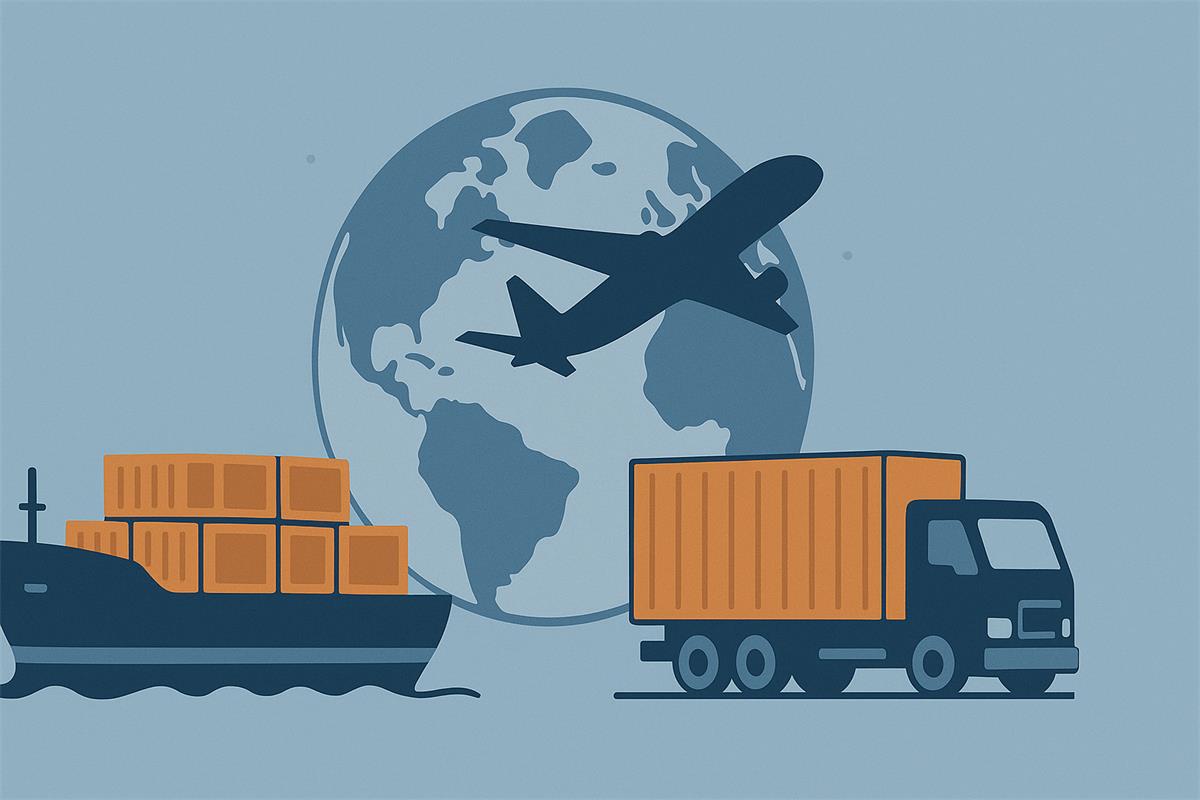When moving goods across the globe, importers and exporters often face a crucial decision: Should I book directly with a carrier (like an airline or shipping line), or leverage the services of a freight forwarder? The answer isn't always straightforward. Both models have distinct advantages and disadvantages, and the best choice often depends on your specific business needs, cargo, and experience level.
In this article, we break down the pros and cons of each approach to help you make an informed decision. We'll also explore how digital platforms like All Forward are reshaping this landscape by combining the best aspects of both options.
Booking Direct with a Carrier
What It Means:
Booking directly with a carrier (ocean, air, or rail) means the shipper bypasses third-party logistics providers and arranges transportation services on their own, typically through carrier websites or booking portals.
Pros:
-
Cost Control: By eliminating the intermediary, you cut out the forwarder's fee. For businesses with the resources and expertise to manage their own logistics, this can lead to significant cost savings.
-
Speed of Booking: Carriers often offer instant booking confirmation for available space.
-
Direct Communication: You communicate directly with the carrier, which can lead to faster, more transparent information about your shipment. If an issue arises, you can address it with the source directly.
-
Full Control: You have complete oversight of your logistics strategy, from carrier selection to route planning. This is ideal for businesses that have in-house logistics teams or a simple, predictable supply chain.
-
Building Carrier Relationships: Booking directly can allow you to build a direct relationship with a carrier, which might lead to better rates or service in the long run if you ship a consistent, high volume.
Cons:
-
Limited Service Scope: Some carriers cover only port-to-port or airport-to-airport movements, and inland transportation, customs clearance, warehousing, or documentation must be arranged separately.
-
Limited Negotiation Power: Unless you are a large corporation shipping massive volumes, you'll have less leverage to negotiate competitive rates with major carriers.
-
Less Flexibility: Direct booking lacks the flexibility to compare multiple routing or pricing options across carriers. If a carrier's schedule changes or a port becomes congested, you are on your own to find a solution. A forwarder, with their network of contacts, is often better equipped to pivot and find an alternative.
-
No Personalized Support: Most carriers operate at scale and cannot offer the tailored support many SMEs or new shippers require.
-
High Risk of Mistakes: The responsibility for documentation, compliance, and customs clearance falls entirely on you. A single error in paperwork can result in serious delays, fines, and storage fees that can wipe out any initial cost savings.
-
Time and Resources: Managing international logistics is a full-time job. It requires a significant investment of time and resources to research regulations, compare rates, and coordinate with various parties. This can be overwhelming for smaller businesses or those with limited staff.
Working with a Freight Forwarder
What It Means:
Freight forwarders act as logistics intermediaries who coordinate shipments from door to door. They manage contracts with carriers, handle documentation, and may offer customs clearance, warehousing, insurance, and value-added services.
Pros:
-
Expertise and Compliance: International shipping is a maze of regulations, customs procedures, and documentation. Forwarders have a deep understanding of these complexities and ensure all paperwork is correct, preventing costly delays and penalties. They are responsible for getting your goods cleared through customs efficiently.
-
Cost-Effectiveness for Complex Shipments: Freight forwarders often have established relationships with multiple carriers and can negotiate better rates. They can also consolidate multiple smaller shipments (LCL or LTL) into one larger container, which can be more economical. This is especially beneficial for small and medium-sized businesses that don't have the volume to get preferential rates on their own
-
Risk Management: Freight forwarders can help you with insurance claims and provide guidance on potential risks, offering a layer of security and peace of mind.
-
Flexible, Scalable Services: Forwarders are ideal for companies with varying shipment sizes, multiple destinations, or non-standard cargo.
-
A Single Point of Contact: Instead of coordinating with multiple carriers, trucking companies, and port authorities, you deal with just one entity- your freight forwarder. This simplifies communication and provides a streamlined experience.
-
Value-Added Services: Many forwarders offer additional services like warehousing, inventory management, and even assistance with trade financing.
Cons:
-
Added Cost: The full-service nature of a freight forwarder means their fees can be higher than booking directly. This may not be ideal for businesses with tight margins or those shipping very low volumes.
-
Transparency Varies: Some traditional forwarders lack transparency in pricing and tracking, which can lead to uncertainty or hidden charges.
-
Less Direct Control: You hand over control of the logistics process to a third party. While this can be a relief, it also means you have less direct oversight of your shipment's journey.
-
Slower Booking Process: In traditional setups, manual quoting and back-and-forth communication can delay final booking confirmation.
-
Potential for Communication Gaps: While a good forwarder simplifies communication, a poor one can lead to miscommunications, leaving you in the dark about your cargo's status.
A Balanced Solution: The Rise of Digital Platforms
The traditional divide between direct booking and using a forwarder is blurring with the rise of digital logistics platforms. Platforms like All Forward bridges the gap between booking directly and using a forwarder by offering a digital freight platform that combines the flexibility of direct booking with the service scope and support of professional forwarders.
How Digital Platforms Bridge the Gap:
-
Online Instant Rates - Our platform offers the simplicity and control of direct booking through an intuitive, user-friendly interface. You can compare rates from multiple carriers and book your shipment in real-time.
-
Global Network Access - Choose among thousands of forwarders worldwide for tailored services, verified through trust scores and reviews.
-
End-to-End Visibility - Our platform provides real-time tracking and a centralized dashboard, giving you unprecedented transparency and control over your supply chain, a key benefit of direct communication, but without the hassle of managing multiple carrier accounts.
-
No Hidden Charges - Platform pricing and documentation are upfront and standardized.
-
One Dashboard, All Tools – Booking, documents, B/L management, schedules, and tracking - all in one place.
-
Expert Support - While you have the freedom to book directly, our platform also provides access to a network of logistics experts who can offer guidance and support, similar to a freight forwarder. They can help with complex customs requirements or unexpected issues, acting as your safety net.
-
Competitive Pricing - We leverage our network to offer competitive rates from a wide range of carriers & forwarders, giving you the power to find the best deal without having to negotiate on your own. This offers the cost-saving benefits of a forwarder's consolidated network with the transparency of direct booking.
Conclusions:
There’s no one-size-fits-all solution. Large enterprises with internal logistics teams may benefit from direct booking, while SMEs or companies dealing with complex logistics will likely need the support of a forwarder. But for many, a platform like All Forward offers the agility, transparency, and scalability that modern trade demands.
By enabling shippers to compare, book, manage, and track shipments from one intuitive dashboard, while still accessing a global network of forwarders, All Forward empowers both experienced and first-time importers/exporters to ship smarter.
Want to explore your options?
Register here and discover how we help you ship better - on your terms.


